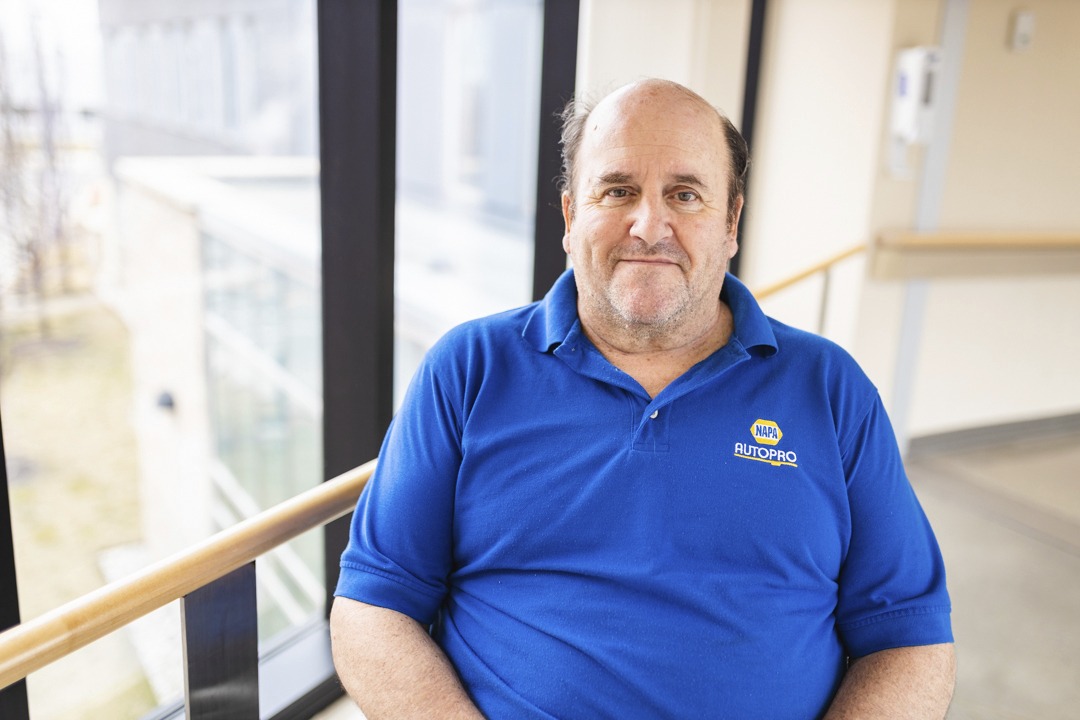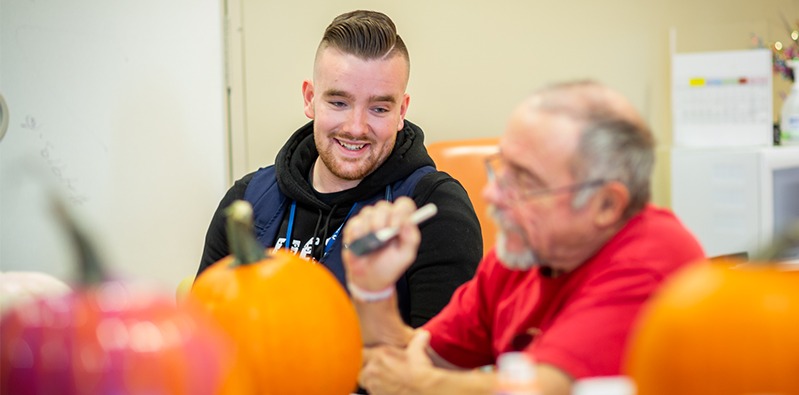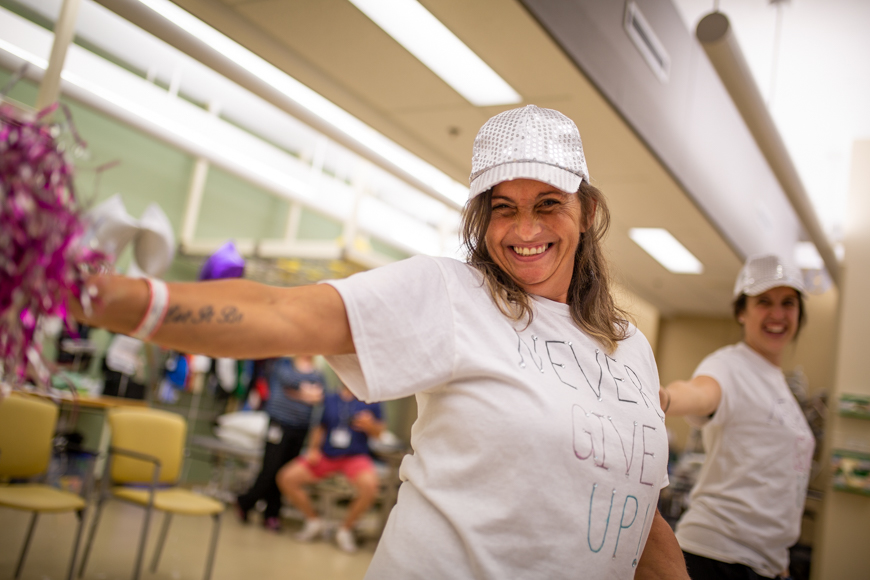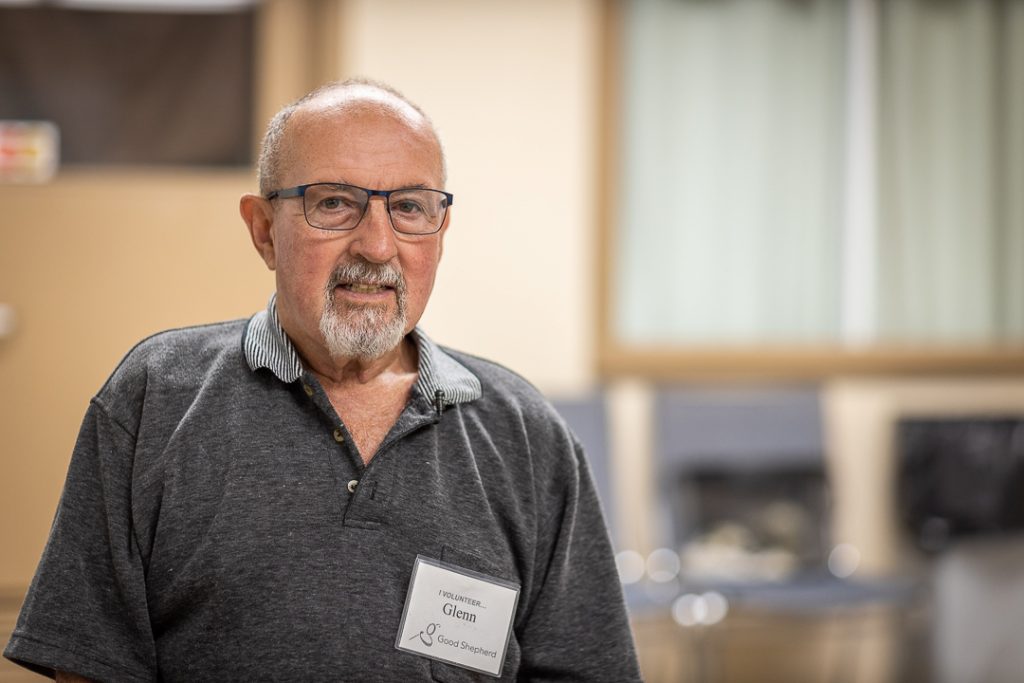
Stoney Creek man recovering with help from brain injury program
Glenn Shuker enjoyed his many years in the workforce, whether it was milking cows or delivering parcels. Shuker, 71, of Stoney Creek helped run his family’s dairy farm for 30 years before switching gears to become a delivery truck driver. He was also a longtime volunteer shuttle-bus driver at the Winona Peach Festival – an event led by his wife Linda, the festival’s current president.
While many of Shuker’s friends had retired, he continued to drive a delivery truck because he enjoyed staying busy. Then last September, Shuker’s industrious lifestyle came to a screeching halt when a work-related motor vehicle accident left him with an acquired brain injury. He was no longer able to work, and has been concentrating on rehabilitation through Hamilton Health Sciences (HHS) Acquired Brain Injury (ABI) Community Services Program. His goals include improving his short-term memory, developing skills to improve his quality of life and returning to the workforce if possible.
Provincial Centre for Acquired Brain Injuries
The ABI Community Services Program provides practical, functional skills and assistance to help patients return to meaningful roles within their family, community and work setting after a brain injury. It’s funded through third-party coverage.
HHS is considered the provincial centre for acquired brain injuries, with patients referred from anywhere in the province.
Road to recovery
After his workplace accident, Shuker was taken by ambulance to HHS Hamilton General Hospital (HGH) with injuries that included bleeding to the brain and damage to the parietal lobe – one of the major lobes in the brain. He also suffered from facial fractures and partial amputation of his left ear.
“Everyone at HHS was really good to me.”
In early October he was transferred from HGH’s acute trauma floor to the ABI in-patient program at HHS’ Regional Rehabilitation Centre, where he received care for over a month. The ABI specialized rehabilitation team designed Shuker’s rehab program to include his goals to return home and gradually back to work. Shuker’s dedication and hard work with the support from the ABI team allowed him to safely return home in mid-November to continue the next steps of his recovery.
Once home he connected with community supports and services including the ABI Community Services program.
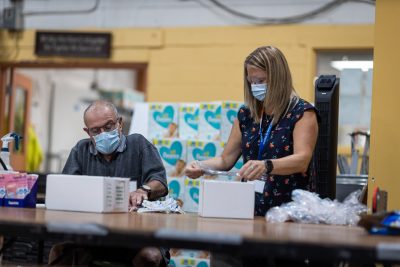
Glenn Shuker volunteers at the Good Shepherd Centre as part of his rehabilitation therapy. He’s supported by Shirley Martin, an HHS advanced rehabilitation therapist.
“Everyone at HHS was really good to me,” says Shuker. “I can’t tell you how much I appreciated the care I received.” These days, he’s especially grateful for Shirley Martin, the HHS advanced rehabilitation therapist who works with him through the ABI program.
Helping patients achieve their goals through rehab
Advanced rehabilitation therapists support the patient to identify goals and develop an individualized treatment program. This involves relearning practical skills for daily living through mentorship, data collection, developing strategies, and collaborating with community teams to ensure continuous care.
Martin works with HHS patients in their home communities, which means travelling to areas including Hamilton, Niagara, Brant, Haldimand, Norfolk and beyond. She collaborates with dozens of community partners to support patients recovering at home, including psychologists, occupational therapy and physiotherapy providers, and non-profit organizations.
“I feel like I’m accomplishing something and helping people.”
“Glenn has always found work to be highly meaningful, and one of his important rehabilitation goals is to someday work again,” says Martin, who arranged for Shuker to volunteer at the Good Shepherd Centre in Hamilton once a week, on Thursday mornings, as part of his rehabilitation. Shuker and Martin have visited the centre together weekly since March.
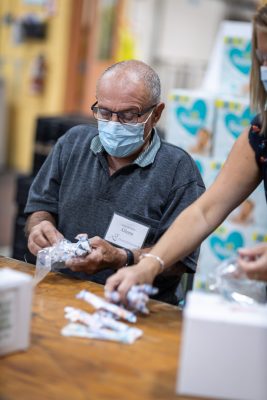
Patient Glenn Shuker sorts items while HHS advanced rehabilitation specialist Shirley Martin lends a helping hand.
“At the Good Shepherd, Glenn has exposure to social interactions with others while participating in community involvement,” says Martin. “This volunteer placement has provided Glenn with the opportunity to increase stamina in a work environment, incorporate pacing strategies and develop organizational skills and work ethic. Glenn is by nature very hardworking, and he brings this to his volunteer role each week.”
Shuker’s tasks at the Good Shepherd include sorting food, clothing, linens and personal hygiene items. Martin joins him, providing support that includes modifying tasks when needed to help him succeed.
“I feel like I’m accomplishing something and helping people,” says Shuker, adding that he has seen his memory and skill sets improve since starting rehab.
“Glenn has come such a long way since I first met him at the Regional Rehabilitation Centre last November,” says Martin. “Volunteering at the Good Shepherd is helping him develop skill sets that will significantly improve his quality of life. Glenn’s such a pleasure to work with, and he’s very motivated to achieve his rehabilitation goals.”

